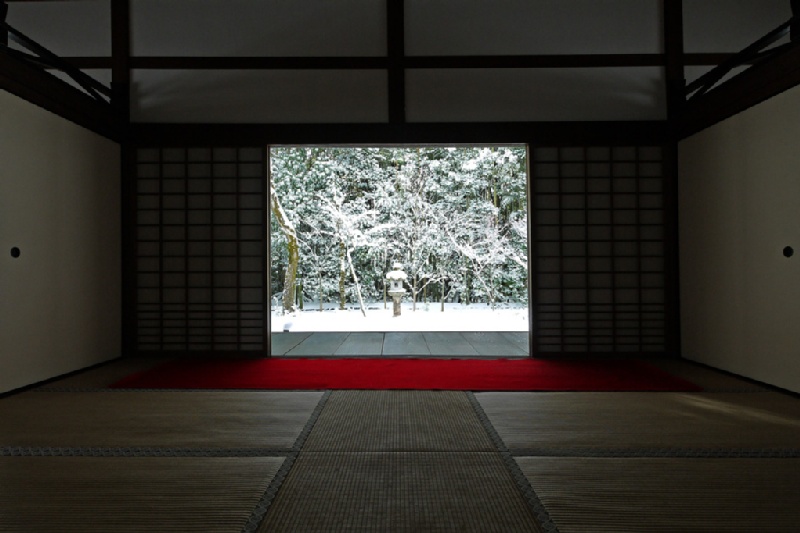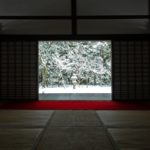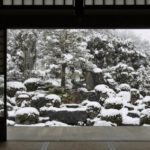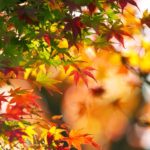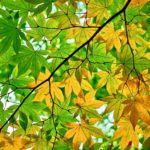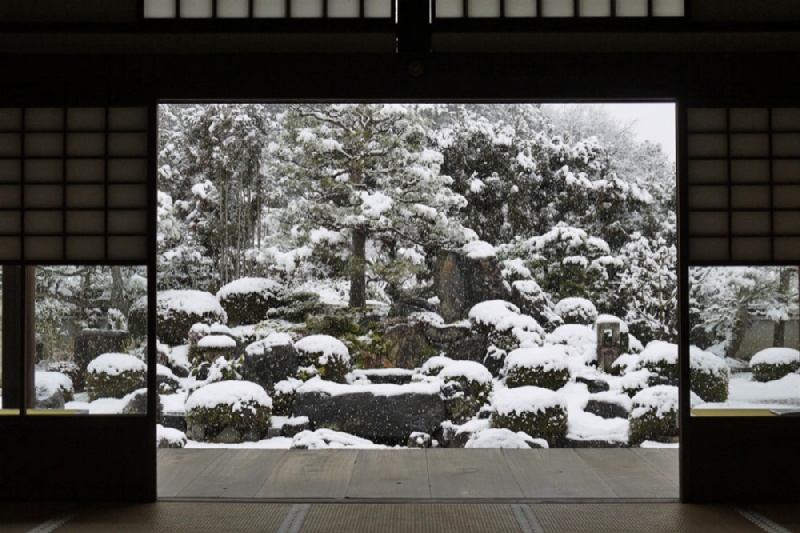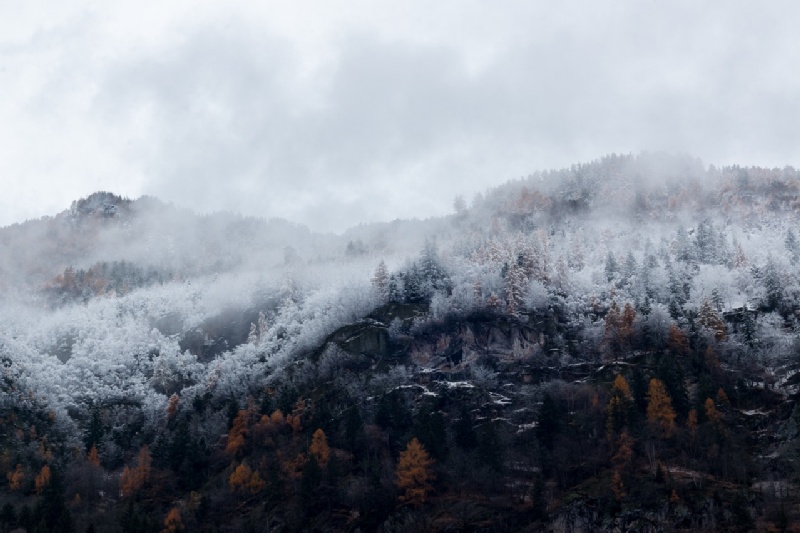This series aims at visiting our mental “Lost and found,” calling for a poetic help to take back a certain emotion we bury away at some point in our life. We lose some things along the way. It might be what you were as a child. This poem, In Retrospect, by Michizo Tatehara (1941-1939) helps us figure out what to do after tracing back our life journey down to where we were.
詩の力を借りて、埋もれてしまった感情を見出だす。そんな「心の遺失物保管所」を訪ねることを本シリーズの目的としています。無くしたものは何かと問われると、自分の原風景とも言える子供時代を思い返すこともあるのではないでしょうか。そうして心の原風景を辿った後どうするのかを考えるのが、立原道造(1914-1939)の「のちのおもひに」です。
In this poem he revisits where he was, including the imagery of younger days along with what he experienced during the course of his life. But he suddenly stops and says “My fancy won’t go any further”, letting his fancy frozen in reminiscence. This can be interpreted as his preparing himself for death because he died at the age of 24.
この詩のなかで、主人公は自分自身の原風景と経験に思いを馳せています。しかし、「そのさきには もうゆかない」と突然宣言し、こうした思いを追憶の中で凍らせ不動のものとします。これを、24歳の若さで亡くなった立原道造自身の死への覚悟とする見方もあります。
It definitely means physical death but it can be also interpreted, in a more positive way, as a mental death and rebirth. We can capsulate in our reminiscence what we have been through, then move on. Opening the door, we walk down the road less traveled. It might be off the beaten track but full of opportunities that you wouldn’t otherwise even imagine.
もちろんこれを肉体的な死と捉えることもできますが、精神的な死と再生と捉えると前向きにも読み取れます。今までの自分を追憶の中にだけとどめ、扉を開けて、不安ではあるが可能性に溢れた新しい道を進むこととも考えられるのではないでしょうか。
Every now and then we take a trip down our memory lane lined with woods and rivers. After the pastel childhood tunnel unfolds the vivid path of later years. We all have particular life experiences whose brilliance take on their own unique hues.
私たちも、心の原風景である故郷の山野であったり、幼年時代の暮らしであったりを、折に触れて心に思い浮かべることがあります。淡い色調の子ども時代を越えると、より鮮明な人生の旅路が思い出されます。自分の見聞や経験はそれなりにあって、そういった思い出の一つ一つはそれぞれ独特の輝きを放っている。
Whether it be bitter or sweet, what you remember about your early days is definitely a bedrock of who you are, upon which you put pieces of experience as you pass each day. This spade work does you good, but at some point you feel boxed up. A set of mindsets is so deeply ingrained that you can hardly envisage a different life course and the idea of pulling out your keystone sounds like losing a part of you and scares you.
こうした原風景は、苦いものであれ甘いものであれ、自分の基盤となっていて、その上に今の自分を築き上げていくのは事実なのですが、しかし、こうした自分の土台そのものが、今の自分を窮屈にすることもあります。自分の原風景と信じるもののイメージに囚われ、異なる生き方をイメージできない。自分の一部となっている土台を崩すのは、自分という人間の一部が無くなるようで不安を感じる。
Nevertheless, once you take one single step away from where you have been, the infinity unfolds before you. The galaxy you’re living in is not the only galaxy that exists in the whole universe. It’s hard to leave behind your psychological fauna and flora that you are familiar with as well as the galaxy encompassing your planet where things are laid out in a particular order. The outer space, in contrast, looks bleak and vacant. But that vast space outside of your galaxy accommodates even more galaxies, which await your visit. That’s how you “make your way under the starry skies.”
しかし、その枠組みから離れてみると、無限の宇宙が広がっているとも考えられます。自分の銀河が宇宙の全てではない。確かに、自分という星を取り巻く銀河、小宇宙を離れるのは辛い。そこにはある種の秩序があり、道もわかっているので、その外の宇宙は寂寥としているようにも思える。しかし、それは新たな銀河に出会う旅の始まりでもある。そんなことを最終行の「星くづにてらされた道」という言葉から感じられもするのです。
のちのおもひに
夢はいつもかへつて行つた 山の麓のさびしい村に
水引草に風が立ち
草ひばりのうたひやまない
しづまりかへつた午さがりの林道を
うららかに青い空には陽がてり 火山は眠つてゐた
──そして私は
見て来たものを 島々を 波を 岬を 日光月光を
だれもきいてゐないと知りながら 語りつづけた……
夢は そのさきには もうゆかない
なにもかも 忘れ果てようとおもひ
忘れつくしたことさへ 忘れてしまつたときには
夢は 真冬の追憶のうちに凍るであらう
そして それは戸をあけて 寂寥のなかに
星くづにてらされた道を過ぎ去るであらう
In Retrospect
My fancy always took me
To the lonesome village
To the hills at a distance
To the grass in the wind
To the calm woodland trails
Tireless crickets chirring
In the warmth of the afternoon
Clear and blue was the sky above
The mountain lay dormant
And I was
A tireless storyteller
On isles, waves, capes
All that I have seen
In the sun and the moon
With no one listening to me
My fancy won’t go any further
In the attempt of nullifying
All the memories
But what did I forget anyway?
Let it get frozen in wintery reminiscence!
From the open door
Into the desolation
Under the starry skies
Make your way
